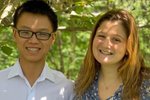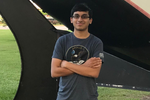GiS Spotlight: 2019 Finalists Claire Jin, Tori Sodeinde, and Jessica Zhang
In just a couple weeks, our Genes in Space Finalists will converge on the ISS Research & Development Conference in Atlanta to compete for the opportunity to send their experiment to the ISS. Through the GiS Spotlight series, we offer you a chance to get to know the Finalists before the big event.
Meet Claire Jin (16), Tori Sodeinde (15), and Jessica Zhang (16), who make up one of the Finalist teams. Named an Honorable Mention last year, Claire returns to the competition with Tori and Jessica, her classmates at State College Area High School in State College, Pennsylvania. Here, the team shares how their early experiences in biology sparked their interest in the field and explains how their research may help curb bone density loss in future space travelers.
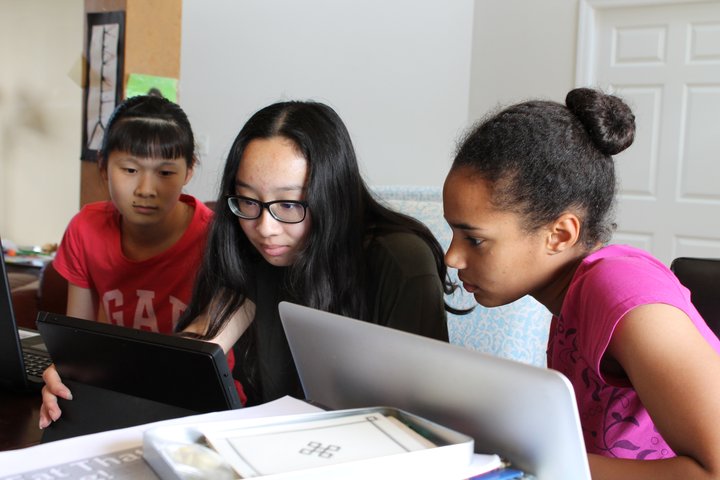 Finalists Jessica Zhang, Claire Jin & Tori Sodeinde
Finalists Jessica Zhang, Claire Jin & Tori Sodeinde
What inspired you to apply to Genes in Space? We were inspired to apply for Genes in Space because we thought that it would be awesome to send an experiment to space and make a real impact on our future and the future of science. We are all also really enthusiastic about science and enjoy the experience of contributing a possible solution to a real-world problem. Additionally, Claire received an Honorable Mention last year, so we felt that this year, as a team, we could do even better.
How did you first become interested in science and space?
Claire: I think I’ve pretty much always been interested in science. My parents exposed me to science from a very young age. I have participated in quite a few science camps and I just loved them and science itself. I first became interested in space when I learned about supernovas from a science camp.
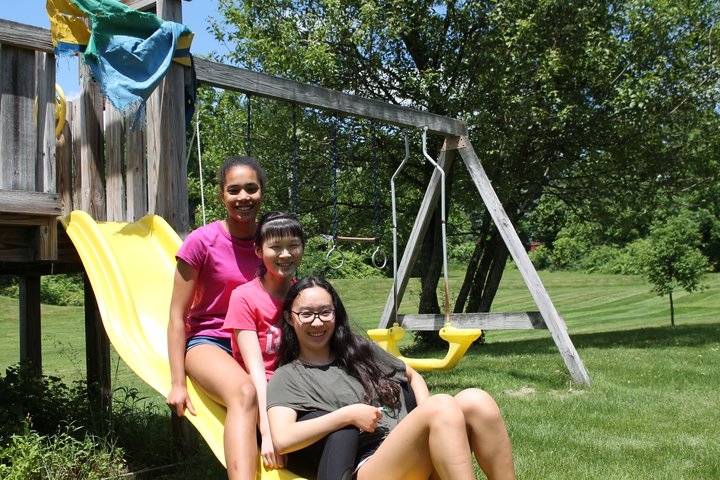 The team investigating gravity on Earth
The team investigating gravity on Earth
Tori: I’ve been around science for a long time. My dad is a microbiologist, so my earliest memories of science are going to work with him and getting to use his pipettes and petri dishes. I didn’t understand everything I was doing, but I had fun, and my interest has continued. I got interested in space when I took Earth Science in 9th grade and had a unit on astronomy; I loved the subject so much that I took an astronomy class this school year, so Genes in Space definitely fits my interests!
Jessica: I was exposed to general science at a young age, but I remember that by my freshman year of high school, I had developed a strong passion for medicine and the social sciences. When we decided that our proposal would be based on bone density loss, I was very excited to learn more about the anatomy and physiology of bones, as well as how to decrease the loss of density due to microgravity. As for space, I took Earth Science in 9th grade, which had a large unit on astronomy that was very enjoyable and fun.
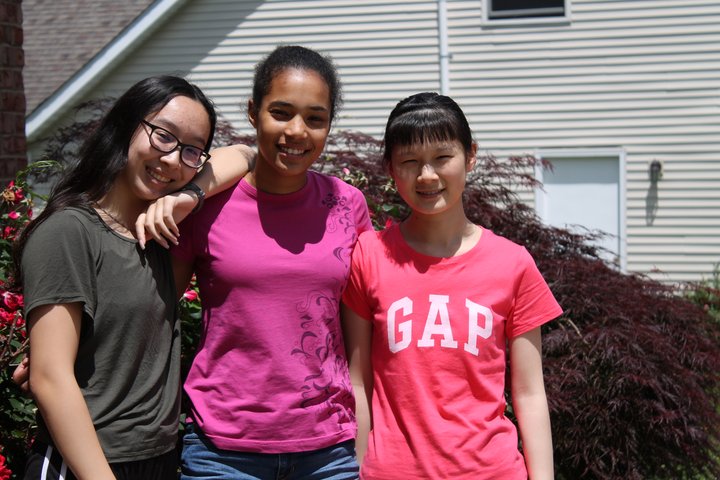 Finalists Claire Jin, Tori Sodeinde & Jessica Zhang
Finalists Claire Jin, Tori Sodeinde & Jessica Zhang
Tell us a little bit about your topic. How and why did you choose your topic? Our experiment looks at the mechanisms of bone loss in space using single-cell analysis. We knew that one of the most glaring problems with space travel is bone density loss which puts astronauts at a high risk for fractures. Finding ways to protect astronauts' bones is imperative for longer missions in the future.
Bone density loss is a dynamic process involving many different cell types. Single-cell analysis is a great way to study this process, because it allows us to gain biological insights about the roles of different cells in this process that cannot be revealed by studying the cell population all together as a whole. Additionally, though single-cell analysis has yielded insightful results in many biological studies, it has not been performed in space, so establishing its feasibility would open many doors to answering other questions related to space biology in the future.
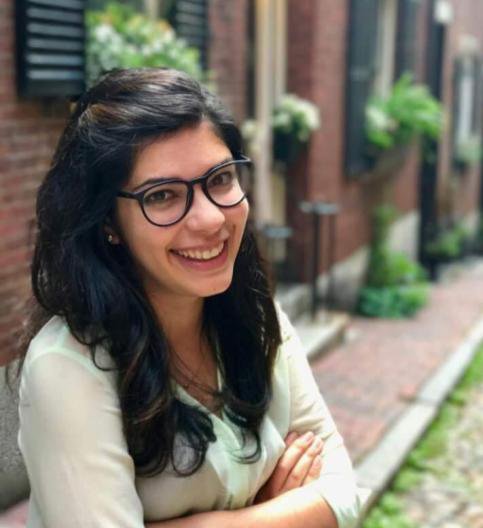 The team's mentor, Harvard scientist Kiana Mohajeri
The team's mentor, Harvard scientist Kiana Mohajeri
Tell us a little bit about what you have been working on since the Genes in Space Finalist announcement. What has it been like to work with your mentor? We’ve been ironing out the details of our experiment and working on our scientific communication skills to get ready for the conference. Our mentor, Kiana Mohajeri, has been wonderful to work with. She’s taught us about recent advancements related to our topic, helped us refine our proposal, and given us advice on effective communication. We’ve learned a lot from her, and we’re all really grateful for her help!
What have you gained by participating in Genes in Space? We’ve learned a lot about space exploration and biological research. While researching, we strengthened our problem solving abilities and research skills like evaluating and learning from research papers. The competition has been a great experience to increase our love of science and to give us a bit of a glimpse into how scientists work. Plus, we had a lot of fun working together on a cool topic!
Do you have any advice for future Genes in Space contestants? We suggest choosing a topic that is both important and intriguing to you. A huge component of this contest is research, so make sure to read lots of articles about your topic and about what’s already been researched in space. Other than that, start working early and brainstorm to find a creative idea.

